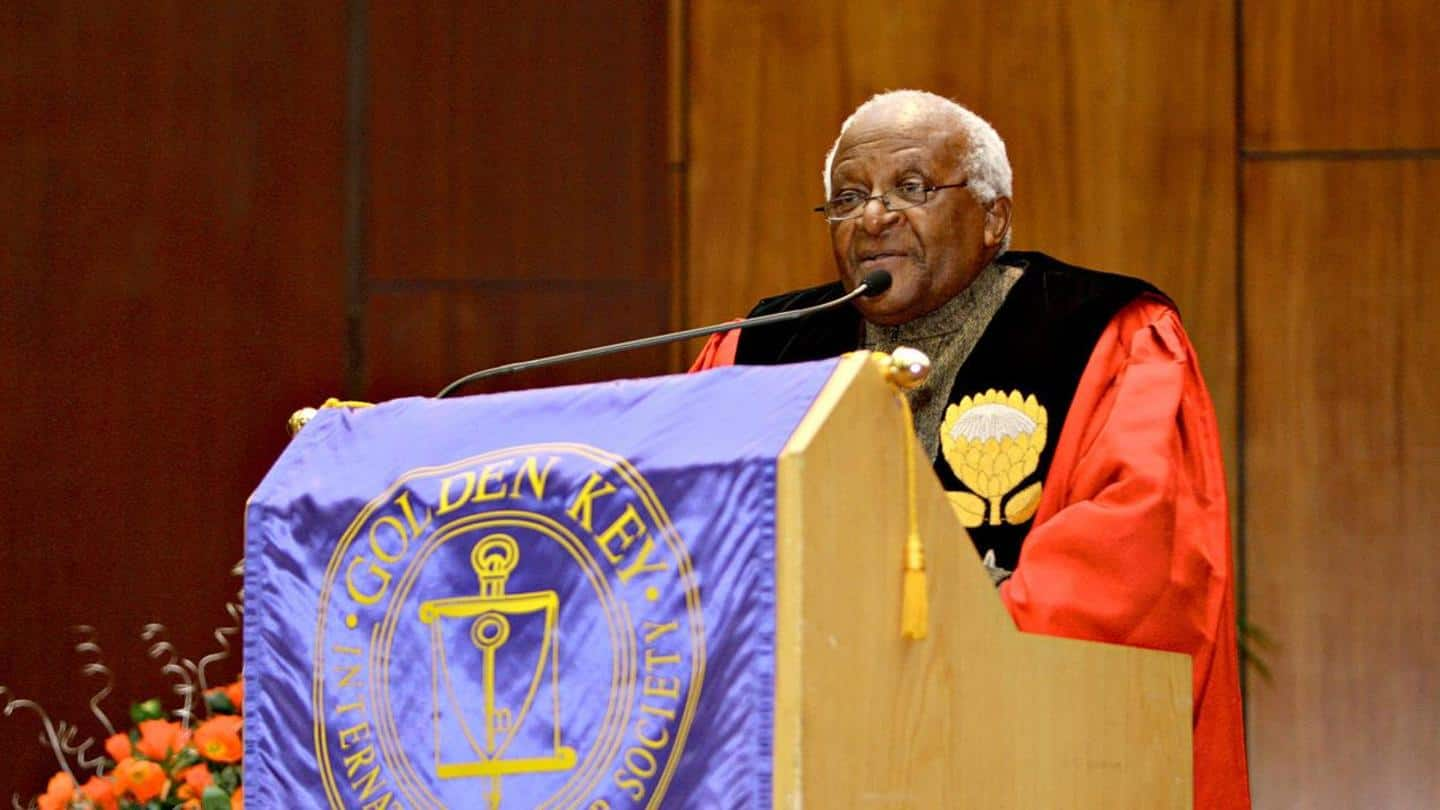
Former archbishop of South Africa, Desmond Tutu, dies at 90
What's the story
Archbishop Desmond Tutu, who won the 1984 Nobel Peace Prize for fighting against racial inequality in South Africa, passed away on Sunday.
He was a retired archbishop of South Africa and an anti-apartheid figure who died at the age of 90.
In 1997, Tutu was diagnosed with prostate cancer and had surgery.
He was admitted to the hospital multiple times for treatment of infections.
Quote
'Another chapter of bereavement'
South African President Cyril Ramaphosa's office issued a statement confirming Tutu's death in Cape Town.
"The passing of Archbishop Emeritus Desmond Tutu is another chapter of bereavement in our nation's farewell to a generation of outstanding South Africans who have bequeathed us a liberated South Africa," said Ramaphosa.
He claimed Tutu was a pragmatic and principled leader who brought new meaning to biblical insights.
Details
Who was Desmond Tutu?
Tutu was one of the main forces behind the fight in South Africa to eradicate racial inequality, from 1948 to 1991.
He is considered a contemporary of Nelson Mandela, the anti-apartheid icon.
He led anti-apartheid campaigns at the grassroots level across the world.
These movements frequently used cultural and economic boycotts as tactics.
In the mid-1970s, he emerged as a crucial leader.
Twitter Post
Indian Prime Minister Narendra Modi condoles the death
Archbishop Emeritus Desmond Tutu was a guiding light for countless people globally. His emphasis on human dignity and equality will be forever remembered. I am deeply saddened by his demise, and extend my heartfelt condolences to all his admirers. May his soul rest in peace.
— Narendra Modi (@narendramodi) December 26, 2021
History
Nobel Peace Prize winner in 1984
Tutu received the Nobel Peace Prize in 1984 for his contributions to the campaign to end racism.
The award was given in recognition of his non-violent resistance to the system.
Tutu is known as an outspoken human rights activist who has raised awareness and spoken out on a variety of global issues, including climate change and the Israel-Palestine conflict.
Details
Desmond Tutu's life: How it unfolded?
Tutu was born on October 7, 1931, and worked as a teacher before joining the movement against racism.
In 1957, he left teaching to join the church, and in 1961, he was ordained as a priest.
In 1986, Tutu was named the first Black Archbishop of Cape Town, leading the Anglican Church.
He was named chair of the Truth and Reconciliation Commission in 1994.